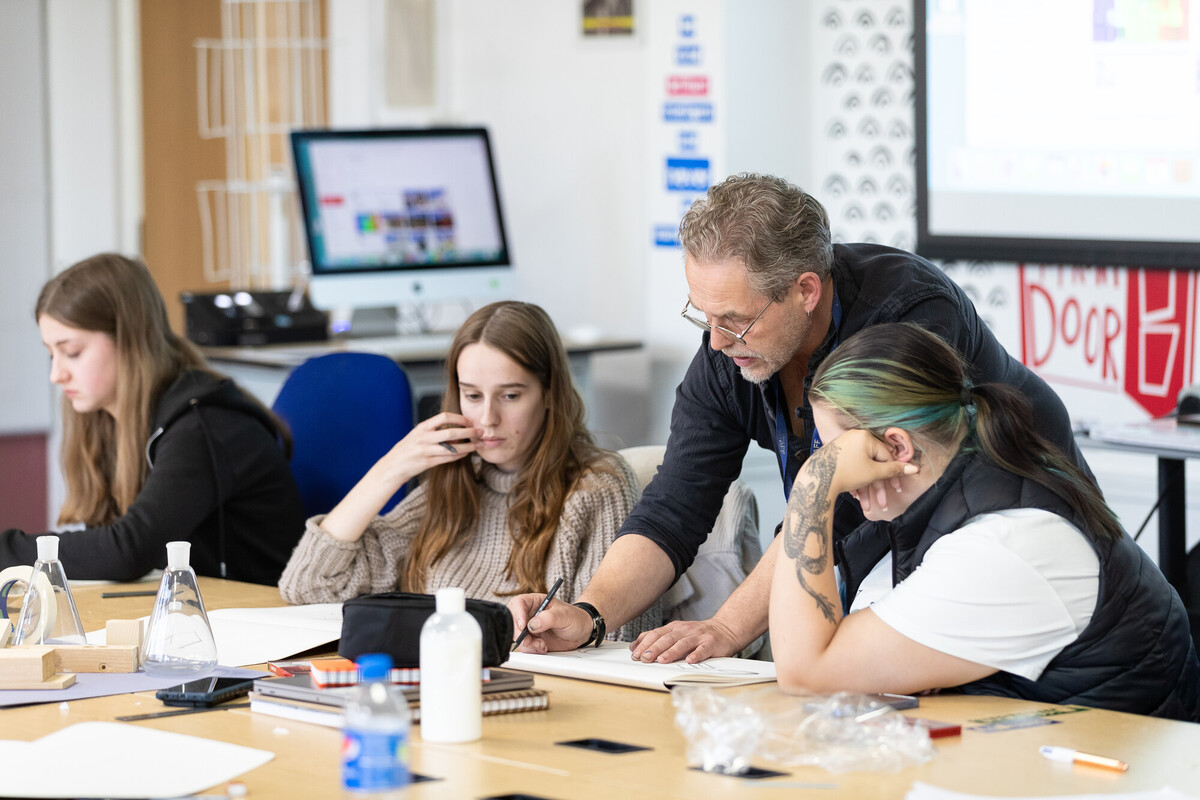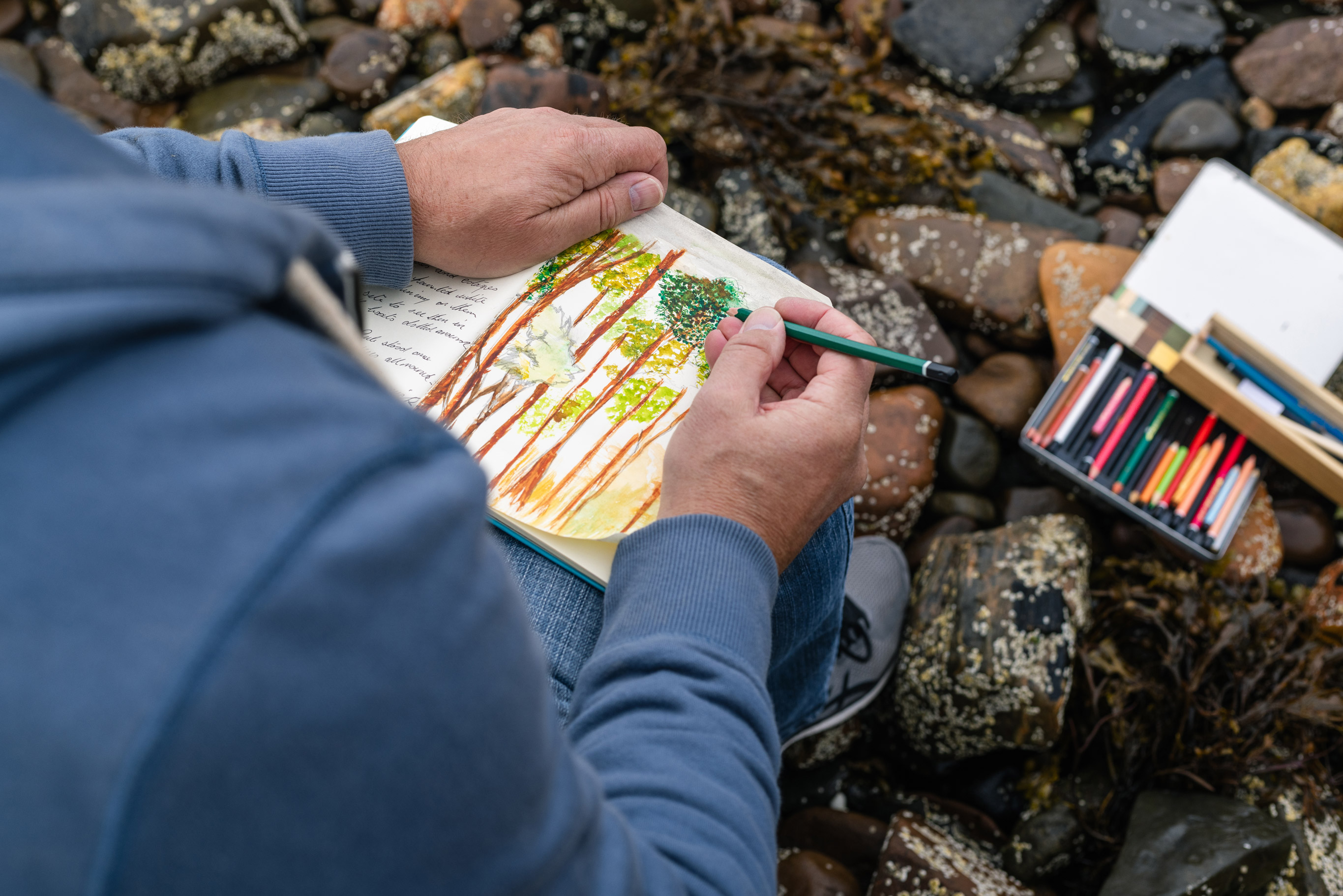Entry Requirements via Application Form
Applicants must demonstrate the following through their application:
- Academic qualifications: Degree in art or a relevant subject such as psychology, social work, teaching, or nursing. Applicants without an art degree must demonstrate active involvement in art making.
- Professional experience: At least one year of relevant paid or voluntary work experience the minimum of one year’s work experience must be gained prior to application and at least one year post degree graduation. Supporting children or adults in settings where therapeutic interventions are used (e.g., social work, nursing, care work, teaching assistant roles, wellbeing facilitation). (Nursery settings, youth work, and higher education teaching/technician roles do not meet this requirement).
- Personal qualities: Emotional maturity, resilience, self-awareness, and the ability to reflect on personal and professional experiences.
- Written work: 500-word essay titled “What is Art Therapy?” with APA references.
- English language requirements: IELTS Level 7 for applicants whose first language is not English.
- Health and safety checks: Enhanced DBS check and satisfactory occupational health clearance (required before starting the programme).
- Personal therapy: Commitment to engage in personal therapy with an HCPC-registered arts therapist throughout training (self-funded).
Assessed at Interview
During the interview, applicants will be asked to present and discuss their portfolio, share relevant work experience, and demonstrate personal qualities:
- Portfolio presentation: Ten artworks (digital portfolios are not accepted), mainly own work but may include one example of group or community-based work.
- Reflection: Ability to reflect on the relationship to their images and the process of creating them.
- Emotional awareness: Emotional responses evoked through art making.
- Skills: Strong communication skills, empathy, and the capacity to build relationships.
- Personal qualities: Demonstration of self-awareness, resilience, and reflective capacity.
Safeguarding / Suitability
All successful candidates who receive an offer of a place for this course and choose the University of Chester as their Firm choice will be required to undergo checks with regards to their suitability to practice.
A couple of months prior to admission to this course, the University will contact you to request that you complete a self-declaration form detailing any relevant convictions or other information that you believe may have an impact upon your ability to undertake work with children or vulnerable adults. You will also receive instructions on how to complete an online application for a Disclosure and Barring Service (DBS) check through the University as a registered body, there will be a charge for this.
Please note that the University does not accept previous DBS checks from other registered bodies or the update service.
For details about the cost of the DBS and for further information please visit our DBS web pages.
Entry Requirements via Application Form
Applicants must demonstrate the following through their application:
- Academic qualifications: Degree in art or a relevant subject such as psychology, social work, teaching, or nursing. Applicants without an art degree must demonstrate active involvement in art making.
- Professional experience: At least one year of relevant paid or voluntary work experience after graduation, supporting children or adults in settings where therapeutic interventions are used (e.g., social work, nursing, care work, teaching assistant roles, wellbeing facilitation). (Nursery settings, youth work, and higher education teaching/technician roles do not meet this requirement).
- Personal qualities: Emotional maturity, resilience, self-awareness, and the ability to reflect on personal and professional experiences.
- Written work: 500-word essay titled “What is Art Therapy?” with APA references.
- Portfolio: Ten artworks (digital portfolios are not accepted) to be presented at interview.
- English language requirements: IELTS Level 7 for applicants whose first language is not English.
- Health and safety checks: Enhanced DBS check and satisfactory occupational health clearance (required before starting the programme).
- Personal therapy: Commitment to engage in personal therapy with an HCPC-registered arts therapist throughout training (self-funded).
Assessed at Interview
During the interview, applicants will be asked to present and discuss their portfolio, share relevant work experience, and demonstrate personal qualities:
- Portfolio presentation: Ten artworks (digital portfolios are not accepted), mainly own work but may include one example of group or community-based work.
- Reflection: Ability to reflect on the relationship to their images and the process of creating them.
- Emotional awareness: Emotional responses evoked through art making.
- Skills: Strong communication skills, empathy, and the capacity to form appropriate relationships.
- Personal qualities: Demonstration of self-awareness, resilience, and reflective capacity.
English Language Requirements
Please note, applicants whose first language is not English must demonstrate they can meet the following English language criteria for this programme:
- IELTS 6.5 overall (no less than 6.0 in any band).
- TOEFL at 95 overall (min 22 in all areas).








